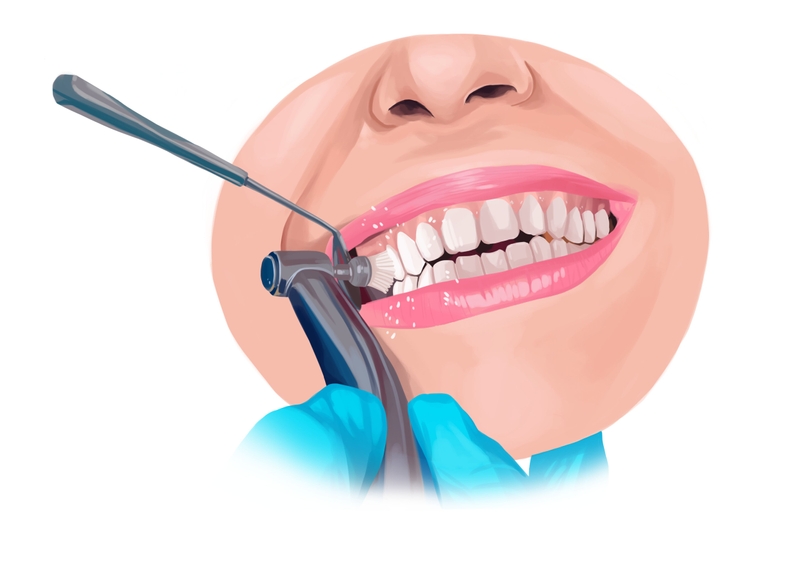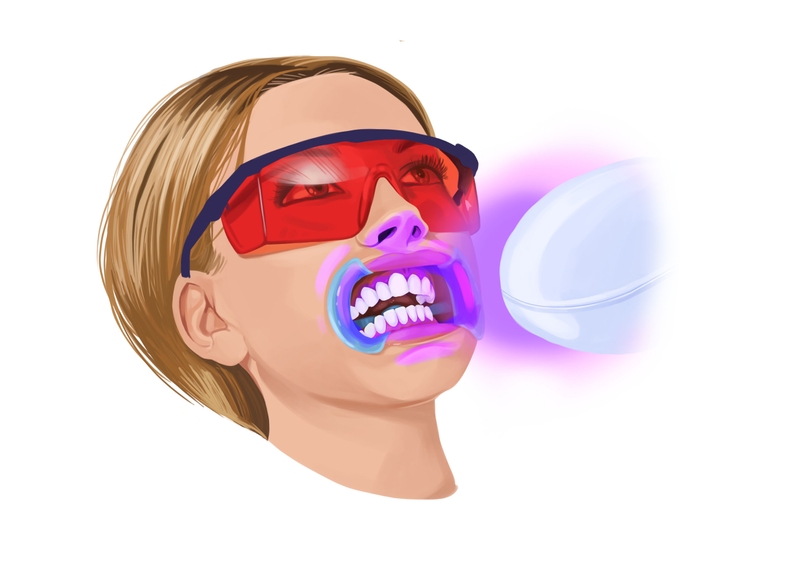- Dental bonding is a cosmetic procedure which repairs and restores missing parts of teeth with tooth-colored composite resin. It is a simple and inexpensive restoration that can correct a variety of minor dental problems.
- Dental bonding can address a number of common imperfections. These include chipped or broken teeth, filling cavities, matching color, and changing the shape or length of a single tooth.
- The procedure is less invasive and less expensive than veneers or crowns. Usually, only a single appointment is required.
We stand by you in every dental emergency. Use Authority Dental to make a quick emergency dentist appointment. It is safe and hassle-free.
Is dental bonding worth it? Here's everything you need to know.
When is tooth bonding needed?
Composite bonding can be used to correct many common imperfections. It may serve for:
closing small gaps between the teeth,
filling cavities (instead of distinctive silver amalgam),
fixing chipped or fractured teeth,
protecting exposed roots,
restoring decayed teeth,
adjusting color,
changing the shape or length of a single tooth.
Teeth bonding procedure
Unlike crowns or veneers, which need to be done in a lab, dental bonding can be completed in a single appointment. What’s more, the procedure is painless, so usually, anesthesia is not necessary. The exception is fixing a decayed or chipped tooth, where the inner portions of teeth have been exposed.
Preparation

Picture by Authority Dental under CC 2.0 license
The procedure itself doesn’t require much preparation.
If you are considering teeth whitening, be sure to complete it before dental bonding. The shade of the material will be closely matching your natural teeth color, but it cannot be changed afterward. Even if you decide to whiten your smile later, the composite will remain darker. The color-changing procedure has to be finished at least 2 weeks before bonding, so chemical substances won’t interfere with one another.
Have your teeth cleaned by a professional before dental bonding, especially if you’re overdue with regular check-ups.
Bonding

Picture by Authority Dental under CC 2.0 license
First, the dentist will choose the shade that’s closest to your natural teeth color and prepare the composite resin. Next, they will roughen the surface of the tooth and apply a conditioning liquid. This helps the bonding material to stick to the tooth.
The resin is then put on the prepared surface and shaped into the desired form. The material is hardened with ultraviolet light. Don’t worry if something feels off - the dentist can correct the shape even when the resin is dry.
The whole procedure usually takes between 30 and 60 minutes.
How to take care of bonded teeth
You can experience mild sensitivity for a few days after the procedure, but other than that you can go back to normal activities right after the appointment.
The bonding material is resistant, although not as strong as our natural teeth. To avoid chipping, try to not bite your nails, chew on pens or ice cubes. Be careful with hard foods, such as candies. Never use your teeth as a tool to cut or open things - even if all of them are healthy.
Composite resin is prone to stains, so smoking, drinking coffee, tea, soda or red wine are likely to leave their mark.
Teeth bonding pros and cons
Dental bonding is a cheaper and faster alternative to veneers or crowns. It’s also less invasive compared to other restorations: only a minimal amount of enamel is removed, while crowns require significant reduction.
Teeth bonding is the best fit for small-scale repairs and cosmetic corrections (such as fixing mamelons teeth). It’s used mostly in low-pressure bite areas, such as front teeth.
Done in one appointment
Affordable
Not invasive
Doesn’t require anesthesia
Prone to stains
Weaker than crowns or veneers
Inadequate for large chips and severe decay
Not suitable for high-pressure areas
Dental bonding near me
Teeth bonding is a common treatment, but your comfort and satisfaction greatly depend on the skills and expertise of a dentist performing the procedure. What’s more, location plays a big role in defining the final price tag. How to find a local dentist that won’t break your budget?
Authority Dental has an extensive database of dental professionals with great reviews and affordable prices. We can help you find an affordable dental clinic nearby and book an appointment.
Your insurance and preferred form of payment will be taken into consideration to optimize the costs. Financing options are also available. The service is free of charge and available 24/7.
FAQ
How long does dental bonding last?
Teeth bonding usually lasts from 3 up to 10 years. Some habits, such as clenching your teeth, chewing on pens or ice can significantly shorten the lifespan of resin bonding.
Is it safe to do tooth bonding at home?
There are a couple of tooth bonding kits available on the market. They’re safe to use, but keep in mind that DIY treatment is suitable only for the most minor cases. The effects last much shorter - up to a few months.
Additionally, be prepared for imperfect aesthetics, while dental bonding done with specialized tools is hard to distinguish from natural teeth.
Is tooth bonding painful?
A dentist works on the surface of a tooth, so the procedure itself is not painful at all. However, if as a result of decay or a large chip the inner layers of the tooth have become exposed, you may need anesthesia.
How does dental bonding compare to veneers?
Teeth bonding works well on a small scale, while veneers can cover a bigger surface. For this reason, veneers require more tooth preparation and enamel reduction. Another difference is the material. Porcelain veneers are twice as durable as bonding - they can last up to 20 years. They are also stain-resistant, so the color won’t change over time.
Does dental bonding look natural?
Yes. The dentist will use a color chart to choose the shade of resin that will closely match your natural teeth. If done well, this restoration is barely noticeable.
References
- Bonding
- Effect of carbamide peroxide bleaching on the shear bond strength of composite to dental bonding agent enhanced enamel
- Comparison of Enamel and Dentin Shear Bond Strengths of Current Dental Bonding Adhesives From Three Bond Generations
- Influence of restoration thickness and dental bonding surface on the fracture resistance of full-coverage occlusal veneers made from lithium disilicate ceramic
- The science of bonding: from first to sixth generation